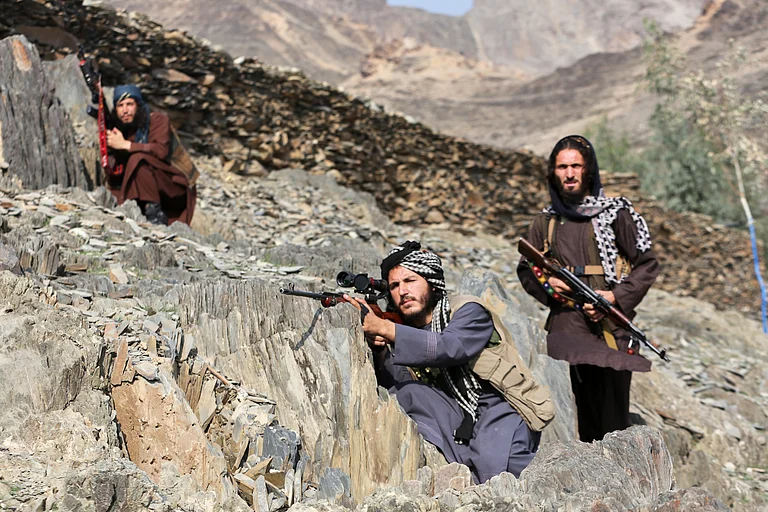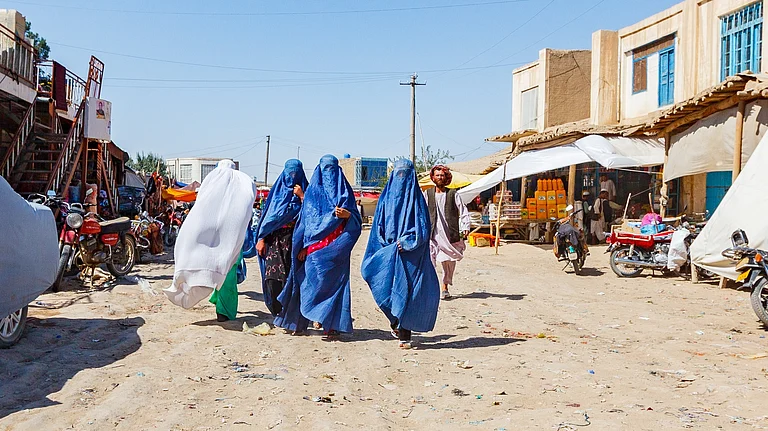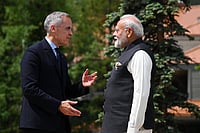What happens when decree after decree robs half the population of participation—forcing them out of public spaces, curtailing education and shutting down their opportunities, to the point of denying them humanitarian help in emergencies? The consequences could be fatal.
Following the earthquake in Afghanistan on 4 September, where thousands perished, the lack of medical assistance for women was especially stark. The Taliban-imposed no-skin-contact rule between men and women left women injured, cornered and isolated, abandoned to bear an unequal brunt of a national tragedy, The New York Times reported.
Stringent cultural and religious norms dictate that only a woman’s close male relative—her father, brother, husband or son—is permitted to touch her.
It has been four years since the Taliban took over Afghanistan—for the second time, two decades after being removed from power by a United States-led military coalition.
Amidst the frenzy of sanctions put on the Taliban in 2021, women and girls poured into the streets in protest—only to be met with violence, arbitrary detention, even killings, such as the shooting of former Member of Parliament Mursal Nabizada by unknown assailants at her home in the capital, Kabul.
Since its return, the Taliban-leg government has imposed directives on women to cover themselves from head to toe, barred them from secondary education, employment, appearing on television, or even the simple act of visiting a park.
According to a recent United Nations news wire report, over 78 per cent of Afghan women are not in education, employment or training, and 62 per cent feel that they cannot even influence decisions at home. It notes that “the Taliban is closer than ever to achieving its vision of a society that completely erases women from public life”.
Since 2021, almost 100 edicts restraining women and girls' movement through society have been instituted and enforced and, in four years, not a single one has been overturned, the UN reported in August 2025.
The September earthquake in Afghanistan impacted more than 11,600 pregnant women, according to the agency for sexual and reproductive health, UNFPA. The crisis is exacerbated by the fact that Afghanistan already has one of the highest maternal mortality rates in the Asia Pacific region, especially with high rates of adolescent birth due to child marriage.
"For pregnant women, a natural disaster can turn an already challenging time into a life-threatening crisis,” Kwabena Asante-Ntiamoah, the UNFPA’s representative in Afghanistan, stated.
Women in Afghanistan are now facing a double-pronged assault on their rights.
Firstly, there are fewer female health workers in Afghanistan. A December 2024 ban blocked women from studying medicine or midwifery, closing one of the last remaining avenues for them to become healthcare providers.
Secondly, in some provinces, women cannot see male doctors—worsening an already dire ordeal.
In the wake of the recent earthquake, Reuters reported that the World Health Organization has asked the Taliban to end restrictions on Afghan female aid workers, and to allow them to travel without male guardians and help women struggling to access medical care.
"A very big issue now is the increasing paucity of female staff in these places," Dr Mukta Sharma, the deputy representative of the World Health Organization's Afghanistan office, told Reuters.
As a result, not only are women in Afghanistan living shorter and less healthy lives but also struggling with closing the workforce gender gaps. Just one in four women is working or seeking work, compared to nearly 90 per cent of men.
The Taliban has stopped women from working at beauty salons, NGOs, civil service, they have also removed women from leadership roles, even forcing NGOs to replace the word ‘women’ with ‘men’ in project documents.


























